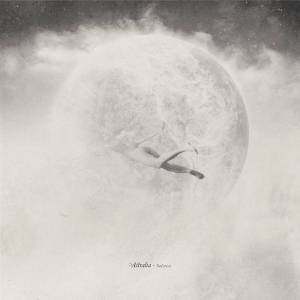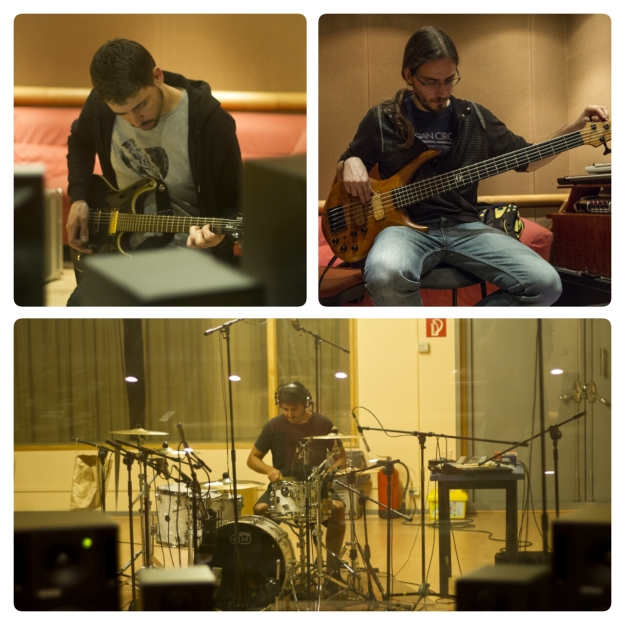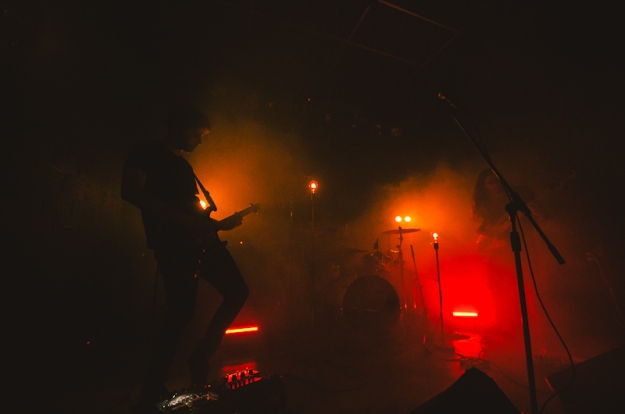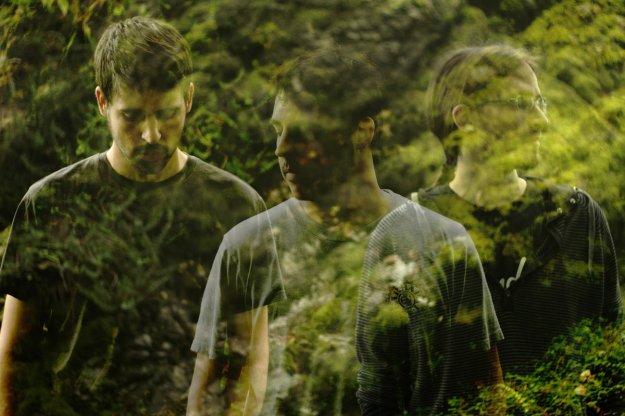About creating post-rock, being special and looking ahead
Astralia is a Spanish band, existing since November 2010. Jordi (drums), Albert (bass) and Roger (guitar) since that time has been developing their own sounding in post-rock.
The review of their latest album “Solstice” was the very first entry in this blog and that’s why Astralia got priority to be interviewed at the Special Goosebumps blog. Roger kindly agreed to answer questions about the band, about the music they play and even about his worldview…
What is Astralia?
– Hi Roger! To begin with, tell us please in a couple of words, what is in your band’s name? Is it related to “astral”, “Australia”, or something else?
– Well, it is supposed to be one of the words that the Inuit have to define a type of snow. In particular “snow reflected by the moonlight or in a moonlit light”. Our drummer Jordi came out with this name but we could never check the source. Anyway, it sounded great to us.
– Very surprising definition! I could not imagine something like this. Who in your collective composes music?
– We usually bring ideas to the rehearsals and then we practice and jam from them. So it’s pure collective creativity.
– Do you feel that your style is at the brink of modern music?
– I guess it is a tough question to answer right now (whatever we understand for modern music). Probably we will see it clearly when we will look back from the future moment so we’ll be able to evaluate the impact on the scene, and in particular on the underground scene.
I don’t think post-rock, instrumental music, is meant for a general audience. It’s true that all these years the number of bands, albums released and number of fans have been growing and growing. But at the end it’s a small community compared with the main and well established genres, and the product/music we are trying to “sell” here… it is far from what the modern fast-food society would want to consume. But frankly I’m Ok as it is!
“Solstice”: the album
-

- Astralia’s latest album “Solstice” (2017)
– Solstice… For sure it’s a good name for an instrumental piece, and within experimental scene we can encounter a bunch of albums or songs named Solstice… Once was Bjork‘s several years ago; If These Trees Could Talk band has their “Solstice” a year before you; in the same 2017, Empyrean Fields issued Solstice as well… Is it by a complete fluke, or do you see any reason for this coincidence?
– Seems a fluke, but this is something you have to live with. You can’t be permanently updated on everyone’s releases! And I guess although we had known it, we had done it anyway as we selected the title by ourselves; it was perfect for us.
Recording
– Was it difficult to record “Solstice”? How did you do that?
– We were very ambitious with the production of this album. We wanted it to sound perfect. It was difficult! Nevertheless we are lucky that our bass player (Albert) is a sound engineer. By the way, he has done all the albums and productions so far. As he is a band member he knows very well what we want, so this makes it way easier for us to look at the sound and mixing. It was a tone of work but we are very happy with the result.

Asralia in the studio
Exhale
– The album starts with “Exhale”. For me, it’s a perfect blend of sensual music and experimental sound. What is priority for you (in case it takes place): sensuality in arrangements or pure guitar music as a main pillar?
– We don’t have priorities, just trying to blend arrangements with bass lines and guitar melodies so everything sounds more evolving. I think we did a step forward in Solstice.
Something special
– Which track(s) is the most important? Or all of them? Tell us about any special from the list.
– We like to see the album as a whole, but if I had to choose I would pick “Detachment”. To me it’s the song that best represents what I feel from this album. It is also a key song in our live set.
– By the way, is your live set more or less repetitive, or do you make differences in the playlist or in your show in general?
– Right now, we are still presenting “Solstice”, so the set list is mainly the new album and a couple of old songs. We’ve been working on programming a light set which we bring to the stage to enhance the experience for the audience. We think it is necessary to complement the music experience and so far it’s working very well!
The Örnen
– What about “The Örnen”? What is it? Does it have any concept behind?
– In Swedish it means “eagle”. By the way, the whole album talks about the cyclical path of the man, from the birth to the death. This track means the plenitude, fullness, represented by the flying of an eagle. More or less…
Abyss of Light
– When I listen to the whole release, it seems for me that “Abyss of Light” is like quintessence of the album. Here we can feel the pure depth of your sound. In the middle of this song you prepared a huge inspiration for a listener. It’s like the gates are opening and you are passing through tiny reality… But did you invent this part “in immediate” or it came out only after series of rehearsals?
– Probably a mix of both. The good thing of recording and mixing of your own album is that you can spend more time for small details like arrangements, background textures, layers, or precise mixing… which finally helps to give a better experience to the listener. This track has a bit of everything: solid drums, evolving guitars and a roaring bass, and textures. I do enjoy this track so much as well.

Astralia while performing on stage
Solstice
– The final part of the album, “Solstice” is like a sip of fresh air. It’s like “buddy, you had a lot of emotions while listening to our stuff. It was contemplative, sometimes even sad, and bright moments… Now it’s over, you can inhale and smile”… Are you rather optimist or pessimist?
– Good question. In this album we wanted to express both feelings. In a lifetime you will receive all different kind of feelings and experiences, some of them will be great while others will turn worst. But this is what has made you be what you are, and there is nothing bad on it. So at the end, as you say, “now it’s over, you can inhale and smile”…
– 🙂
Retrospective…
– Looking back to the time of “Atlas” (previous Astralia’s album released in 2014), which transition did you make since that? What has changed and what has stayed on the place?
– I think our sound has evolved. To me, now our sound is more mature and complete. And mainly, and very important, we have a better idea of what we want and what we don’t want when writing and recording. It seems obvious, but this is what time and experience gives you.
– In my opinion, “Solstice” is way more profound and memorable piece. “Atlas” is more light and almost without heaviness. Are you on the way to more heavy music?
– In essence, Atlas should be heavier while Solstice – more ambiental or experimental, but I agree that Solstice might sound darker or more aggressive in some parts (some bright as well). I don’t know if we are on this way, but I guess that is what we wanted to express now. Time will tell what we’ll have inside for the next album!
Astralia + voice?
– What about some vocals for your compositions? Have you reflected about this or can you suppose once it will come along?
– For the moment we don’t have the feeling but you never know. Maybe someday.
Post-rock
– One can say that post-rock is a kind of “globalized” music. Meaning that there is a number of bands from different corners of the planet and most of them perform post-rock without any “national” or authentic peculiaritу. Would you agree with such a point?
– Not really agree. I really do see (general) peculiarities in each country’s post-rock, sometimes it’s only a subtle flavor, sometimes these specificities are more evident. You can trace similarities between American bands, in their sound and the way they write and put out the music. As well it happens to the UK school, where they trend to be more “mathy”. And when you listen to Mono you can really feel the japanese touch, for example. What to say about Icelandic bands… unique. Nowadays there are even bands that play with traditional instruments as is the case for Jambinai (South Korea).
So at the end everyone has his own musical and historical background which is reflected in your writing. Here in Spain we have a band called Exquirla which blends the post-rock (from the band Toundra) and the flamenco voice (from El Niño de Elche); it is an interesting project and people seem to like it.
– And what about you… Do you consider introducing something Spanish in your future albums?
– Not really interested at the moment.
Regrets…
– Do you regret something? What is it?
I don’t know… maybe to tour more? Sometimes it’s difficult to combine touring with work and personal life.
Man vs man+computer
– Nowadays, more and more electronic and artificial ways of creating music appear and invade. Thus there is less field for “manual” music. Do you think of yourself as a kind of resistance fighters?
This is an endless debate I have often with friends and colleagues. As in every field, there’s high quality and low quality works. I can deeply appreciate high quality electronic music, and sometimes it can take even more job to conduct such recording than a traditional analogic low quality production. As always, it depends on the talent and on the product you want to give. I don’t feel that live rock concerts are losing field in the scene. In fact, you can see the big festivals crowded. What we are seriously losing here are the club concerts vs festivals. And this is a major concert for me and for many musicians in bands that try to tour every now and then.
Friends of Astralia
– Which bands are you in relations with? Name several of your kindred spirits.
– We made a lot of friends throughout these years: Kokomo, Atsuko Chiba, Audiolepsia, Doomina, Lehnen, Labirinto, Böira, The End of The Ocean… just to name a few!
– Great! Some bands of your circle are also among my favorites. I think they’ll be also at this blog some day. And we can now check all these bands you named.
Russian?
– Do you know any good contemporary music from Russia?
– Sure! The guys at Aesthesys and Show Me a Dinosaur rock! I also love the first album from the band 417.3, amazing sounds!
Other ways…
– Besides post-rock, what are your favorite styles in music?
– We are used to listen other styles like progressive, death, black, doom, stoner, electronic, experimental…
Fears…
– Are you afraid of future? If yes, why are you? If not, what are you afraid of?
– Yeah, I’m afraid of ourselves, humans. We have been trying so hard to destroy the planet and everything we know. I’d bet we will finally achieve it soon if we won’t stop this!
Future

Astralia: trio that vreates pure inspirational music
– Let’s take a glimpse into future Astralia. Let us scroll forward a couple of years. What do you see there?
– Right now I can’t really tell. Hope writing and touring!
Future
– Take a deep breath, close your eyes… and describe, what is your aspiration? Do you ponder it in everyday life?
I don’t ask for too much. Just be happy in the life and enjoy the music as much as we can.
– Thank you, Roger, for opportunity to know better you and Astralia! It was a pleasure to make this interview. Wish you all the best and great success to your band!

Pingback: Far Behind The Sun – Story Of Collapsing Galaxies (2017) | Selected goosebumps
Great article. Astralia is one of my favorite post-rock bands. And I do agree with the fact that different countries tend to maintain a certain style while writing post-rock music. Spain in particular tends to lean towards a heavier side.
LikeLiked by 1 person
Gracias! Thanks for kind words and hugs!
LikeLiked by 1 person
Pingback: El Club Del Infinito: behind the masks and paint [interview] | Selected goosebumps